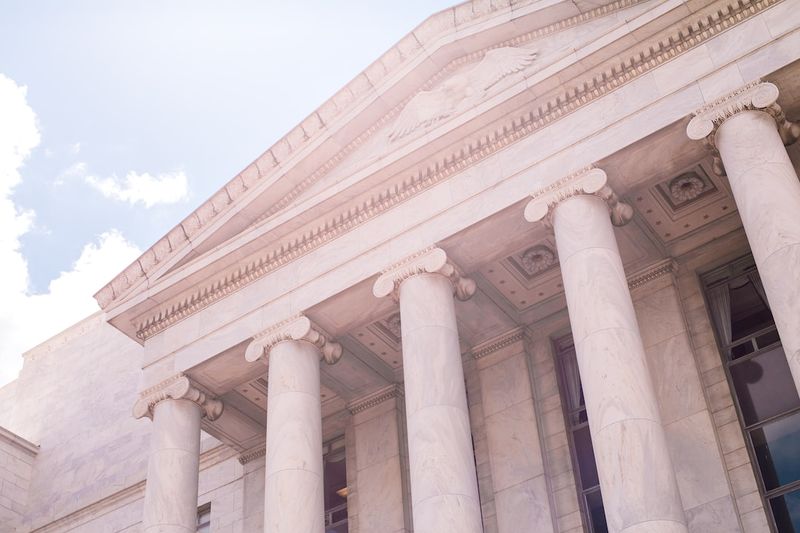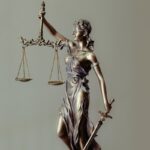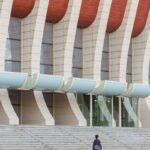US ambassador flags potential Julian Assange plea deal
The US ambassador to Australia, Caroline Kennedy, has indicated that there could be a potential plea deal to resolve the ongoing detention of WikiLeaks founder Julian Assange. Assange has been fighting extradition to the United States from the United Kingdom, where he faces espionage and computer misuse charges related to WikiLeaks’ publication of classified documents over a decade ago.
The Battle for Julian Assange
Julian Assange has been embroiled in a legal battle for years, seeking to avoid extradition and face trial in the United States. His case has garnered international attention and sparked debates about freedom of the press, government transparency, and the power dynamics between nations.
Assange’s supporters argue that he is a journalist and publisher who has exposed government misconduct and wrongdoing through his work with WikiLeaks. They view his prosecution as an attack on journalism and press freedom. On the other hand, the US government maintains that Assange’s actions went beyond journalism and amounted to criminal conduct. They accuse him of endangering lives and compromising national security.
A Potential Resolution?
Caroline Kennedy’s recent comments suggest that there may be a glimmer of hope for Assange. Speaking to the Sydney Morning Herald, the US ambassador stated that there could be a potential resolution to the case. While she emphasized that it was not strictly a diplomatic issue, she indicated that a plea deal could be reached, allowing Assange to return to Australia.
It is important to note that any potential agreement would ultimately be up to the US Justice Department. This means that even if a plea deal is on the table, it is still subject to the legal process and the decision of US authorities.
The Philosophical Dilemma
The case of Julian Assange raises significant philosophical questions about the nature of journalism, the role of governments in maintaining secrecy, and the boundaries of legality and morality.
On one hand, there is a strong argument for press freedom and the right of journalists to expose government misconduct. Journalists play a critical role in holding those in power accountable and ensuring transparency in democratic societies. Assange’s supporters argue that his actions were in line with this journalistic responsibility.
However, opponents of Assange’s actions argue that he crossed a line by publishing classified information that could potentially harm individuals and compromise national security. They contend that there need to be limitations on the freedom of the press in situations that involve the endangerment of lives and the compromise of sensitive information.
This philosophical debate is at the core of the Assange case and highlights the tension between the right to know and the need for national security.
Editorial: Finding a Middle Ground
As the case of Julian Assange unfolds and the possibility of a plea deal arises, it is crucial to find a middle ground that ensures both press freedom and national security.
Firstly, it is imperative to recognize the importance of a free press in a democratic society. Journalists should be allowed to investigate and report on matters of public interest, including government misconduct. However, this freedom comes with a responsibility to consider the potential repercussions of their actions.
Secondly, it is essential for governments to have mechanisms in place to protect sensitive information and ensure the safety of individuals involved in national security matters. National security must be upheld, but governments should also be held accountable for their actions.
Therefore, a plea deal that acknowledges Assange’s role as a journalist and his contributions to public knowledge while also addressing the concerns regarding the endangerment of lives and national security could be a potential solution. This could involve a commitment from Assange to exercise responsible journalism moving forward and a recognition from the US government that certain information should not have been classified in the first place.
Ultimately, the resolution of the Assange case should aim to strike a balance between press freedom and national security, acknowledging the complexities of the situation and the philosophical dilemmas at play.
Advice: Way Forward
As the potential for a plea deal emerges, it is important for all parties involved to approach the situation with open minds and a commitment to finding a fair and just resolution.
For Julian Assange and his legal team, it is crucial to engage in constructive and transparent discussions with the US Justice Department. They should be prepared to address the concerns raised against Assange and demonstrate a willingness to accept responsibility for any wrongdoing.
For the US government, it is essential to consider the broader implications of the case and the impact on press freedom. While ensuring the protection of national security, they should also recognize the importance of a free press and the role journalists play in holding governments accountable.
Furthermore, the international community, including Australia, should play a role in facilitating productive dialogue between the involved parties. Diplomatic efforts and mediation can help bridge the gap and lead to a mutually beneficial resolution.
By approaching the Assange case with an open mind, a commitment to press freedom, and a recognition of the need for responsible journalism, there is a chance to find a way forward that respects the principles of democracy and justice.

<< photo by Katie Moum >>
The image is for illustrative purposes only and does not depict the actual situation.
You might want to read !
- US envoy signals possible Julian Assange plea agreement
- The Dark Shadow: Paul Dawson’s Alleged Connection to Sinister Crimes
- Judicial Jumble: Power Outage Sends Court System Into Disarray
- Caroline Kennedy hints at potential plea bargain for Julian Assange: An exploration into the shifting dynamics of the Assange case.
- “Unmasking the Expertise of Epidemiologist Mary-Louise McLaws: Shaping the Path to Public Health Success”
- TV Drama Deep Dive: Exploring the Allure of Painkiller, Alone, and Only Murders in the Building
- “The Battle of London: Brentford and Tottenham Clash in Premier League Showdown”




